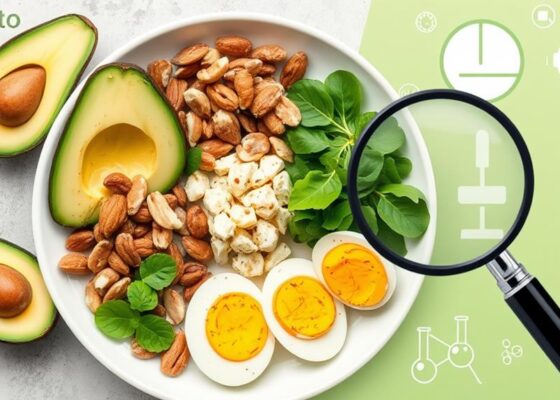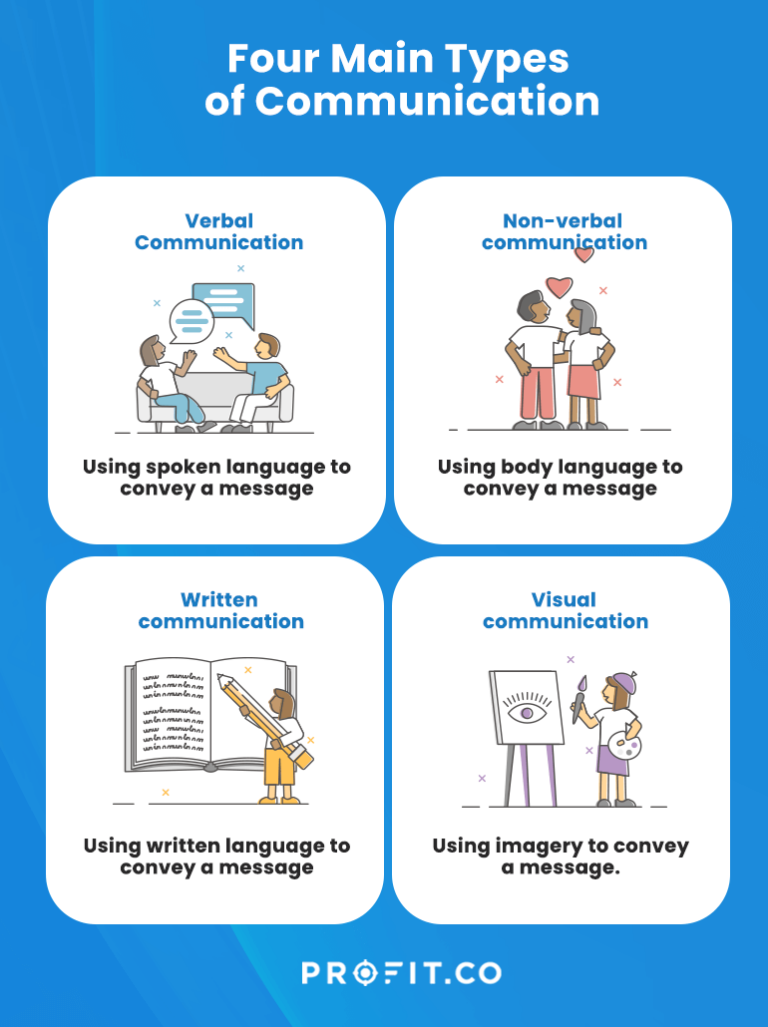Nutrition Myths Debunked: What Science Really Says
Many nutrition myths mislead people. Science debunks these myths, providing clear, evidence-based truths.
Nutrition is riddled with myths that can confuse even the most health-conscious individuals. Myths like “carbs are always bad” or “eating after 6 PM causes weight gain” often circulate without scientific backing. Understanding the real science behind nutrition helps in making informed dietary choices.
Health experts and research studies offer clarity, debunking common misconceptions. Accurate information empowers individuals to follow balanced diets, leading to better health outcomes. This blog sheds light on prevalent nutrition myths, revealing what science really says. Stay informed to make healthier, smarter decisions in your daily eating habits.

Credit: www.ketosocialeats.com
Common Nutrition Myths
Many people believe myths about food and health. These myths can mislead and confuse. Let’s uncover the truth behind some popular nutrition myths.
Myth Of Detox Diets
Detox diets claim to cleanse your body of toxins. These diets often promise quick weight loss and increased energy. But science tells a different story.
Our body has its own detox system. The liver, kidneys, and intestines naturally remove toxins. There is no need for special diets or juices.
Here are some key points about detox diets:
- Lack of scientific evidence: No proof that detox diets remove toxins.
- Nutrient deficiencies: These diets often lack essential nutrients.
- Temporary results: Any weight loss is usually water weight, not fat.
Instead of detox diets, focus on a balanced, healthy diet.
Sugar And Hyperactivity
Many parents believe that sugar causes hyperactivity in children. This myth has been around for decades. But research does not support this belief.
Studies show no direct link between sugar and hyperactivity. Children are naturally energetic and playful. Sugar does not make them more hyper.
Consider these findings:
- Placebo effect: Parents’ expectations can influence their observations.
- Party environments: Excitement at events may be mistaken for sugar effects.
- Balanced intake: Moderation in sugar consumption is key.
Focus on overall diet quality, not just sugar intake.

Credit: nutritionsq.com
Carbs And Weight Gain
Many people believe that eating carbs causes weight gain. This myth has led to fear of carbs. But what does science say? Let’s explore the truth about carbs and weight gain.
Good Vs. Bad Carbs
Not all carbs are equal. Good carbs are found in whole foods. These include fruits, vegetables, and whole grains. Bad carbs are in processed foods. These include sugary snacks, soda, and white bread.
Good carbs provide energy and nutrients. They support a healthy body. Bad carbs can cause quick spikes in blood sugar. This can lead to weight gain and other health issues.
| Good Carbs | Bad Carbs |
|---|---|
| Whole grains | White bread |
| Fruits | Sugary snacks |
| Vegetables | Soda |
Role Of Fiber
Fiber is essential for a healthy diet. It helps with digestion and keeps you full longer. High-fiber carbs include beans, lentils, and whole grains.
Fiber slows down sugar absorption. This helps prevent blood sugar spikes. It can also help with weight management. Foods high in fiber are more satisfying. They help control hunger and reduce overeating.
- Beans
- Lentils
- Whole grains
Eating high-fiber foods can help you stay healthy. Choose good carbs and include fiber in your diet. Your body will thank you!
Fats: Friend Or Foe?
Fats often get a bad rap. Many believe all fats are harmful. This is a myth. Science shows fats can be both good and bad. Understanding the difference is key to better health.
Saturated Vs. Unsaturated Fats
There are two main types of fats: saturated and unsaturated. Saturated fats are solid at room temperature. They are found in butter, cheese, and red meat. Unsaturated fats are usually liquid. They are found in olive oil, nuts, and avocados.
Here is a simple table to explain:
| Type of Fat | Common Sources | State at Room Temperature |
|---|---|---|
| Saturated Fats | Butter, Cheese, Red Meat | Solid |
| Unsaturated Fats | Olive Oil, Nuts, Avocados | Liquid |
Impact On Heart Health
Unsaturated fats are often called “good fats.” They can help reduce bad cholesterol. This lowers the risk of heart disease. Saturated fats, on the other hand, can increase bad cholesterol. This raises the risk of heart disease.
To keep your heart healthy, focus on these tips:
- Choose olive oil over butter.
- Eat more nuts and seeds.
- Include avocados in your diet.
- Limit red meat and cheese.
Remember, not all fats are equal. Knowing the difference can help you make better choices.
Protein Myths
Many people believe in myths about protein. These myths often lead to confusion. Let’s explore the truth behind these myths.
Protein Overconsumption
Some think eating too much protein builds more muscle. This is not true. Your body can only use a certain amount of protein daily. Excess protein does not build more muscle. It may even cause health issues.
Here is a simple table to explain protein needs:
| Age Group | Daily Protein Needs (grams) |
|---|---|
| Children (4-8 years) | 19 grams |
| Teens (14-18 years) | 46-52 grams |
| Adults | 46-56 grams |
Eating more than these amounts does not offer extra benefits.
Plant-based Proteins
Some believe plant-based proteins are incomplete. This is false. Many plants offer complete proteins. Quinoa, soy, and buckwheat are great examples.
Here is an unordered list of some plant-based protein sources:
- Quinoa
- Chia Seeds
- Hemp Seeds
- Tofu
- Tempeh
- Beans
- Lentils
These foods provide all the amino acids your body needs. You can get enough protein from plants alone.
Vitamin And Mineral Myths
Many people believe in myths about vitamins and minerals. Let’s debunk these myths with science. Understanding the truth helps you make better health choices.
Multivitamin Necessity
Some believe everyone needs a daily multivitamin. This is not always true. A balanced diet often provides all necessary nutrients. Multivitamins can help those with specific deficiencies or dietary restrictions. For most healthy individuals, food sources are best.
Here is a simple comparison:
| Nutrient Source | Pros | Cons |
|---|---|---|
| Whole Foods | Natural, balanced, includes fiber | May require careful meal planning |
| Multivitamins | Convenient, covers a range of nutrients | Possible overconsumption, expensive |
Natural Vs. Synthetic Vitamins
Many think natural vitamins are better than synthetic ones. This is not always true. Both forms can be effective. The body often absorbs and uses both in similar ways.
Consider these points:
- Natural Vitamins: Found in whole foods, often combined with other beneficial compounds.
- Synthetic Vitamins: Made in labs, can be more affordable and concentrated.
Both forms can support health. Choose based on your needs and preferences.
Organic Foods
Organic foods are often seen as healthier and safer options. Many people believe they have superior nutrition and fewer pesticides. But what does science say about these claims? Let’s explore the facts.
Nutritional Differences
Do organic foods have more nutrients? Studies show mixed results. Some research finds higher levels of certain nutrients in organic foods. These include antioxidants and vitamins. Other studies see no significant difference.
Here is a simple comparison:
| Food Type | Organic | Conventional |
|---|---|---|
| Antioxidants | Higher | Lower |
| Vitamins | Similar | Similar |
| Minerals | Similar | Similar |
Overall, the differences in nutrition are small. Eating a variety of fruits and vegetables is the best choice.
Pesticide Concerns
Organic foods are grown without synthetic pesticides. This makes people think they are safer. But organic farms can still use natural pesticides. These can also be harmful in high amounts.
Here are some key points:
- Organic foods have fewer pesticide residues.
- Both organic and conventional foods are safe to eat.
- Washing fruits and vegetables reduces pesticide residues.
Organic foods can have health benefits. But they are not the only safe option. Conventional foods also meet safety standards.
Hydration Myths
Many believe in common hydration myths. Let’s see what science says. Proper hydration is crucial for health, but myths confuse us.
Eight Glasses A Day
The “eight glasses a day” rule is popular. Science shows it isn’t always needed. Water needs vary by person. Factors like age, weight, and activity level matter. Some need more, others less. Listen to your body’s signals. Thirst is the best indicator.
Hydration Sources
Water isn’t the only hydration source. Many foods and drinks hydrate us. Fruits and vegetables are rich in water. Examples:
- Cucumbers: 95% water
- Watermelons: 92% water
- Oranges: 86% water
Other drinks also count. Milk, tea, and juice contribute to hydration. Even coffee can hydrate, despite the caffeine.

Credit: www.facebook.com
Superfoods
Superfoods have become a buzzword in the world of nutrition. Many believe these foods hold extraordinary health benefits. But what does science really say about superfoods?
Nutrient Density
Superfoods are often praised for their nutrient density. This means they contain high levels of vitamins, minerals, and antioxidants in small amounts. Foods like blueberries, kale, and salmon are often called superfoods.
Take a look at the nutrient profile of these foods:
| Food | Key Nutrients |
|---|---|
| Blueberries | Vitamin C, Vitamin K, Fiber, Antioxidants |
| Kale | Vitamin A, Vitamin C, Calcium, Iron |
| Salmon | Omega-3 Fatty Acids, Protein, Vitamin D |
These foods provide essential nutrients that support overall health. Eating a variety of nutrient-dense foods can help meet your dietary needs.
Marketing Hype
The term superfood is often used as a marketing tool. Companies use it to promote certain products and boost sales. But not all foods labeled as superfoods are backed by science.
Here are some common examples:
- Goji Berries
- Açaí Berries
- Chia Seeds
While these foods are nutritious, they are not magic bullets. Eating them won’t cure diseases or make you instantly healthy. It’s important to focus on a balanced diet instead.
Remember, no single food can provide all the nutrients your body needs. A varied diet with different foods is the key to good health.
Conclusion
Understanding nutrition myths is crucial for making informed health choices. Science provides clarity and dispels misconceptions. Trust evidence-based information for a healthier lifestyle. Stay curious and always question popular diet trends. Your body deserves the best, backed by science. Make smart choices and nourish yourself wisely.






